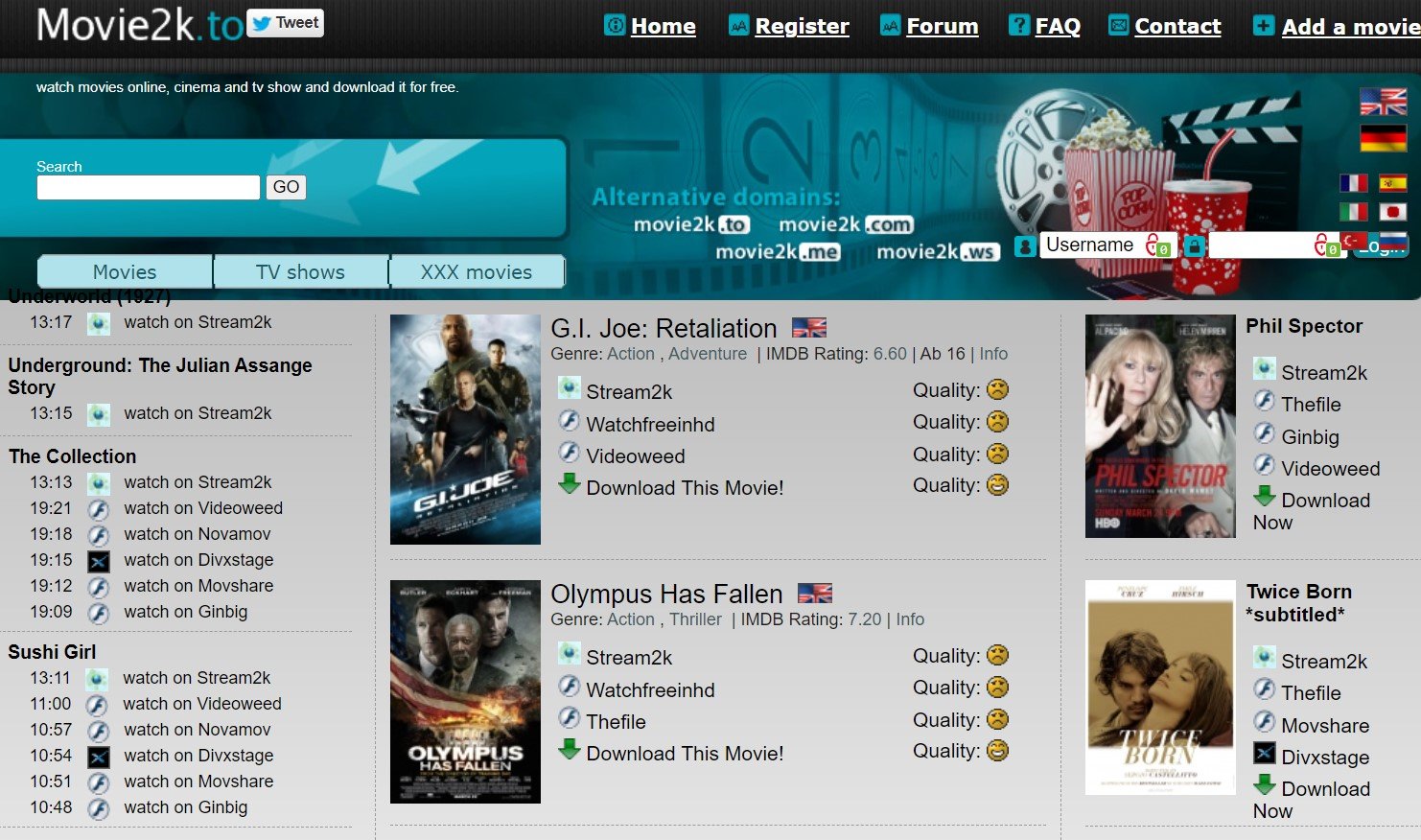-
chevron_right
Pirate IPTV Owner’s Conviction First Ever Under Protecting Lawful Streaming Act
news.movim.eu / TorrentFreak · 3 days ago - 18:23 · 5 minutes
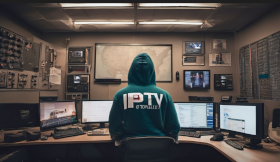 Copyright law crafted decades ago to prevent infringement in an analog world has in many cases held up remarkably well in the digital age. Copying or reproduction remains relevant, as does the concept of distribution.
Copyright law crafted decades ago to prevent infringement in an analog world has in many cases held up remarkably well in the digital age. Copying or reproduction remains relevant, as does the concept of distribution.
In the United States, the existence of a loophole in copyright law had been an open secret for some time. One way or another, file-hosting and BitTorrent sites could be linked to the unlicensed reproduction and distribution of copyright works, both of which carry felony charges.
However, a newer breed of streaming sites were seen as engaging in unlicensed public performances of copyrighted works; a misdemeanor offense under a law that failed to anticipate streaming, let alone its meteoric rise to piracy dominance.
The Protecting Lawful Streaming Act ( PLSA ) closed the loophole late December 2020 with the creation of a new felony offense ( 18 U.S.C. § 2319C ) for those who, willfully and for commercial advantage or private financial gain, offer or provide to the public a digital service that illegally streams copyrighted material.
A Brand New Start or Just Hype
After taking so long to arrive, expectations were high. The return of “ billions of dollars in stolen revenue ” may have been optimistic, but after all the talk and calls for urgency, it was suddenly up for debate whether the PLSA would be used at all.
Keen to get on with the fight against piracy, Senators Patrick Leahy and Thom Tillis urged Attorney General Merrick Garland to make prosecutions under the PLSA a priority. But then, several months later in 2021, something caught our attention.
The instantly recognizable term “illicit digital transmission” had appeared in a criminal complaint for the first time. The case ultimately went in a different direction and the charge was shelved, but it was a sign of intent, if nothing else.
First Conviction Under PLSA – How it Started
Seemingly out of nowhere, the PLSA claimed its first conviction this week. Landmark events like this are usually seen as an opportunity to celebrate the hard work of everyone involved, while sending a deterrent message to would-be pirates. But in this case, apparently not.
According to a grand jury indictment, from December 11, 2017, until September 7, 2021, Franklyn Valverde owned and operated an IPTV and VOD service marketed as ‘Fenix’.
In South Carolina and elsewhere, it’s claimed that Valverde knowingly and intentionally conspired to commit offenses against the United States, “to wit: the illicit digital transmission of services, in violation of Title 18, United States Code, Section 2319C.”
DISH Network Mentioned Early
A prosecution under the PLSA shouldn’t be much different from any other but in this matter, an oddity raises its head right at the start. The indictment claims that Valverde’s streaming service operated by way of a “copyright infringing connection to DISH Network.”
DISH is extremely well-known for filing its own lawsuits because, at least on paper, most years they generate damages awards that can reach hundreds of millions of dollars. Why DISH suddenly found itself in the middle of a criminal case isn’t revealed in the indictment; what does seem clear is that others also had ‘copyright-infringing connections’ to DISH.
“M.D., a person known to the Grand Jury, owned, and operated ‘Cord Cutters’ and ‘Olympus TV,’ IPTV and VOD services that sold access to copyrighted movies and television programs by way of an unauthorized and copyright infringing connection to
Dish Network,” the indictment reads.
Valverde’s Operation
Subscribers to the Fenix service were able to access infringing content through various web-based applications for use on various platforms, including smart TVs, computers, set-top boxes, cellphones, and tablet devices.
According to the indictment, Valverde marketed Fenix and attracted subscribers through a network of resellers, each of whom sold monthly subscriptions via so-called reseller credits. One credit equals one month of access; profit is generated by buying credits at a discount and selling them on at a higher price to customers.
“Typically, [Valverde] sold access to Fenix streams of content to resellers using a unique access code. The reseller would then provide the code to the customers at an upcharge; Customers would then have access to the copyrighted materials for a specified period, typically one month.”
While the ‘publicly performed’ aspect clearly relates to the PLSA, all other aspects from reproduction to secondary infringement could’ve been handled under existing law. Nevertheless, the indictment covers other matters too.
Overt Acts
In furtherance of the conspiracy, it’s alleged that Valverde committed the following acts:
1. Between 2017 and July 2021, Valverde sold reseller credits to ‘J.R.D’, a person known to the Grand Jury, for between $9 and $15 per credit. J.R.D resold the credits to customers for $25, enabling them to view the “publicly performed” works.
2. Between 2018 and May 2020, Valverde sold reseller credits to ‘M.D’, a person known to the Gran Jury, for between $7 and $15 per credit. M.D resold the credits to customers for $25, enabling them to view the “publicly performed” works.
“All in violation of Title 18, United States Code, Section 371,” the indictment adds. (18 U.S.C. § 371, Conspiracy to Defraud the United States)
Count Two
In essence, count two in the indictment repeats the allegation that Valverde operated a digital transmission service, contrary to the PLSA.
Here, however, it’s alleged that on an unknown date, his Fenix service transmitted “one or more works being prepared for commercial public performance,” and where the defendant “knew or should have known that the work was being prepared for commercial public performance.”
Under the PLSA these violations can dramatically increase the maximum penalties available to the court.
The indictment doesn’t reveal which rightsholders’ content was infringed via the service, i.e which TV shows or movies were publicly performed. The other question involves the content allegedly obtained from DISH. If the content was obtained from DISH at the time it was broadcast to the public by DISH, as is usually the case, it raises the question of how it was still being prepared for broadcast. Court filings offer no explanation.
Valverde Enters Plea
On June 9, 2023, at a district court in South Carolina, Valverde entered a plea of not guilty. He was subsequently given additional time to “review discovery, discuss the case, and negotiate further with the Government in an effort to resolve the case short of trial.”
With a full trial looming, a plea agreement dated November 23 reveals that Valverde had agreed to plead guilty to Count 2 of the indictment. This count covers the provision of the illicit digital service and the works being prepared for commercial public performance; as such the potential penalties are significantly increased.
In a judgment published Tuesday, District Judge Mary Geiger Lewis sentenced Valverde to twelve months and one day in federal prison followed by three years of supervised release.
The financial components of Valverde’s sentence include a $250,000 fine plus $22,639.27 in restitution. That amount is payable to NagraStar, the anti-piracy company partially owned by DISH that seems to have carried out the investigation against Valverde, in part at least.
The fates of ‘J.R.D’ and ‘M.D’ are unknown.
From: TF , for the latest news on copyright battles, piracy and more.






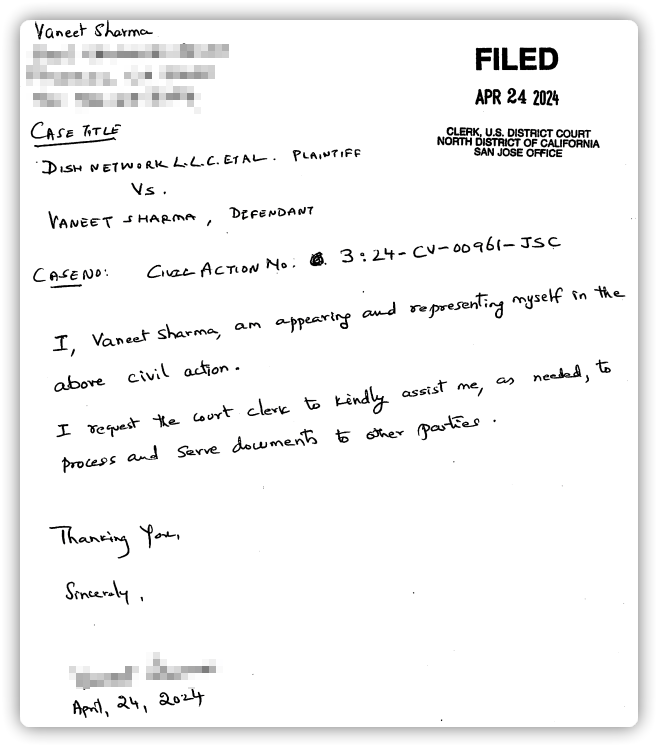
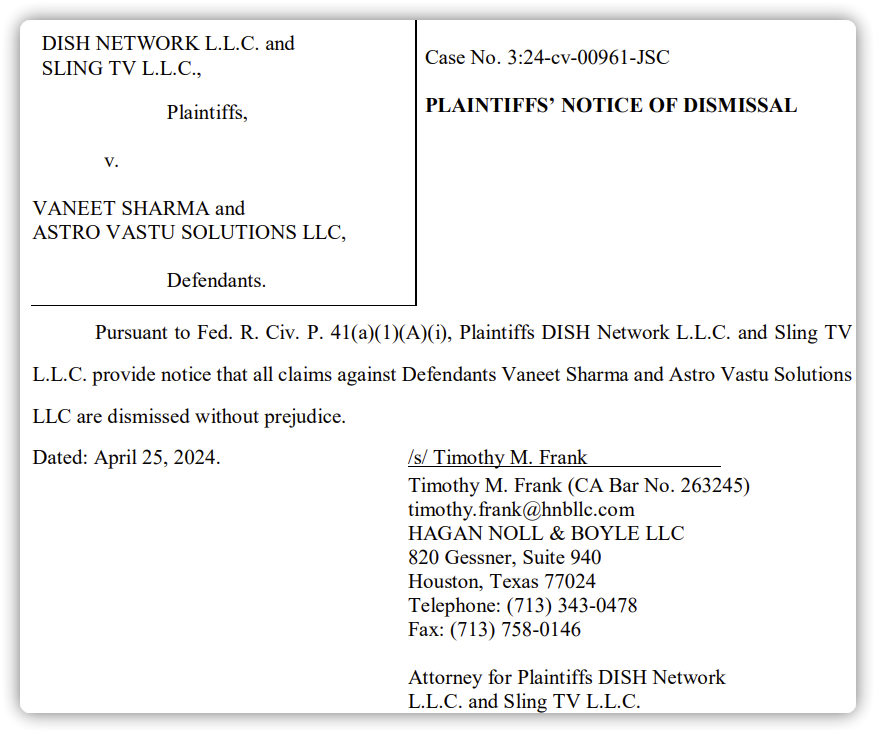

 Tracking BitTorrent pirates isn’t all that hard since IP addresses are openly broadcasted. With help from Internet providers, these addresses can then be linked to account holders.
Tracking BitTorrent pirates isn’t all that hard since IP addresses are openly broadcasted. With help from Internet providers, these addresses can then be linked to account holders.

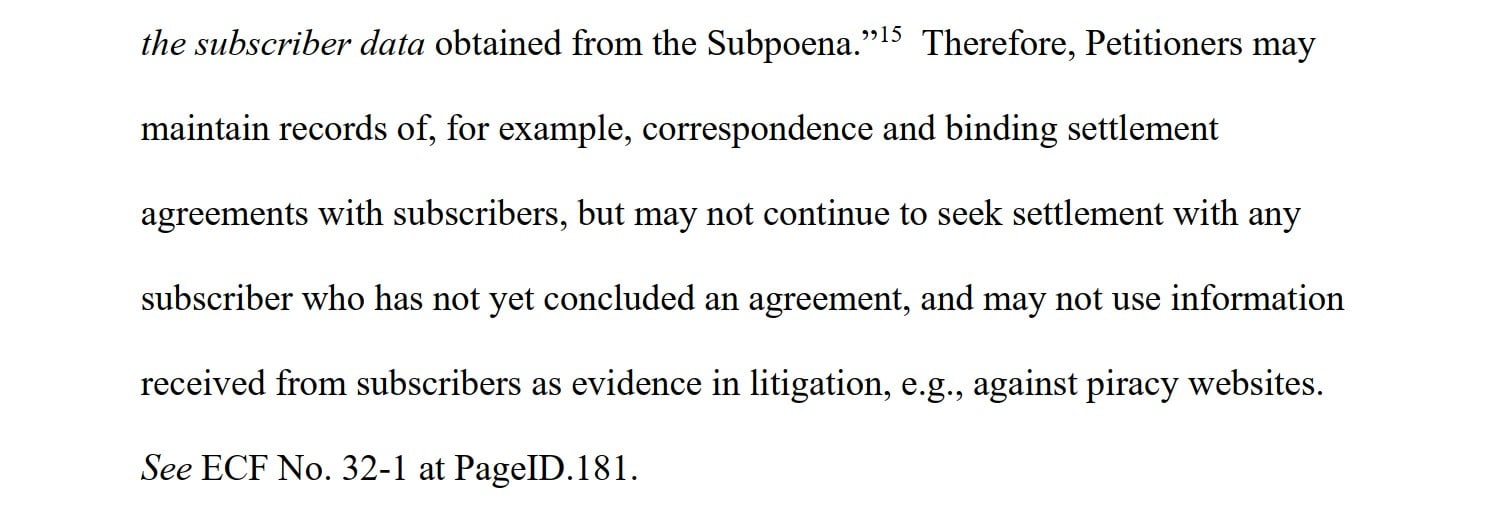
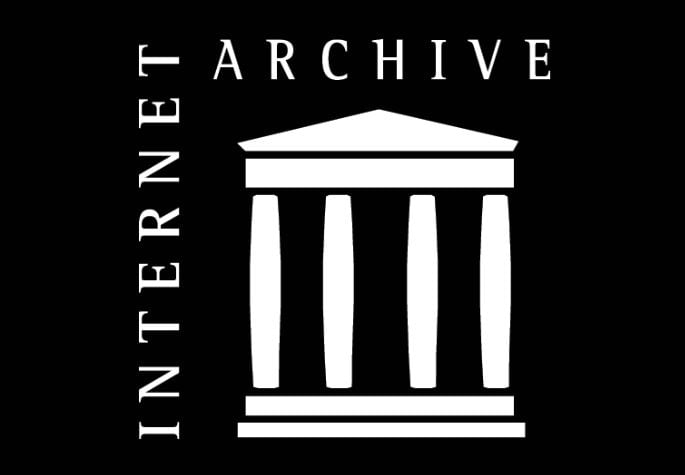 The non-profit Internet Archive (
The non-profit Internet Archive (


 In recent years, copyright holders have paid close attention to a growing number of large piracy services with connections to Vietnam.
In recent years, copyright holders have paid close attention to a growing number of large piracy services with connections to Vietnam.



 Under U.S. copyright law, Internet providers must terminate the accounts of repeat infringers “in appropriate circumstances.”
Under U.S. copyright law, Internet providers must terminate the accounts of repeat infringers “in appropriate circumstances.”
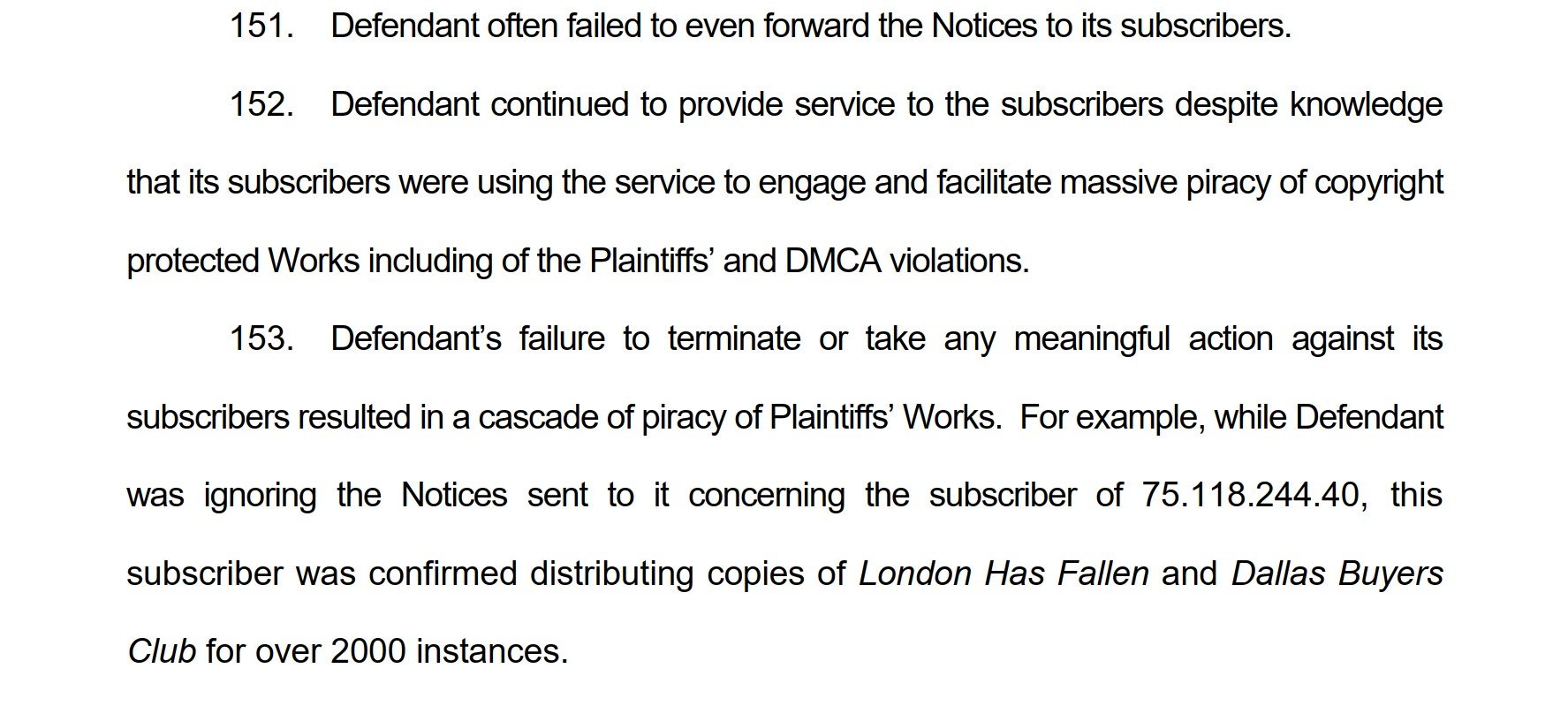
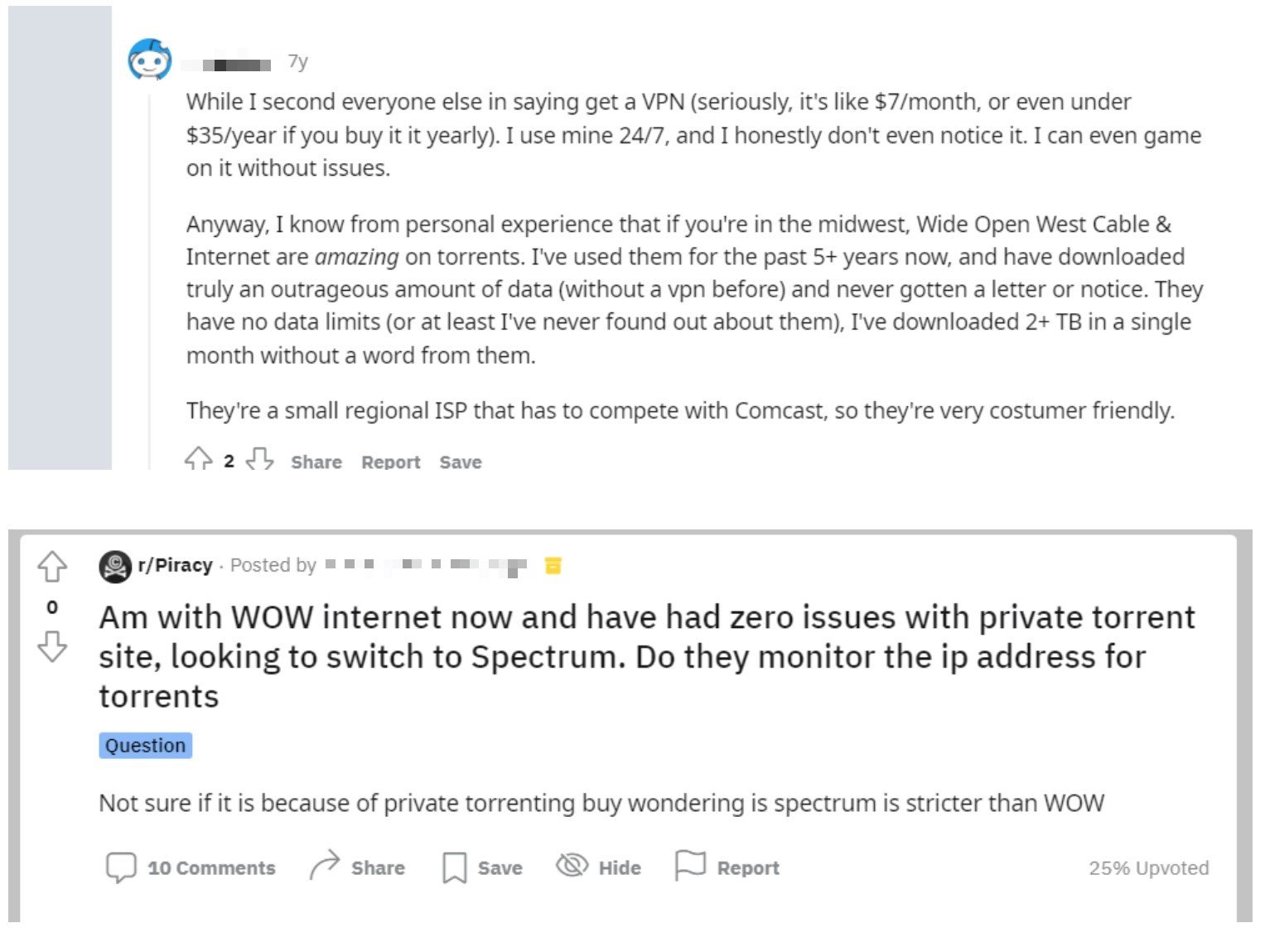
 At the start of the 2010s,
At the start of the 2010s,
